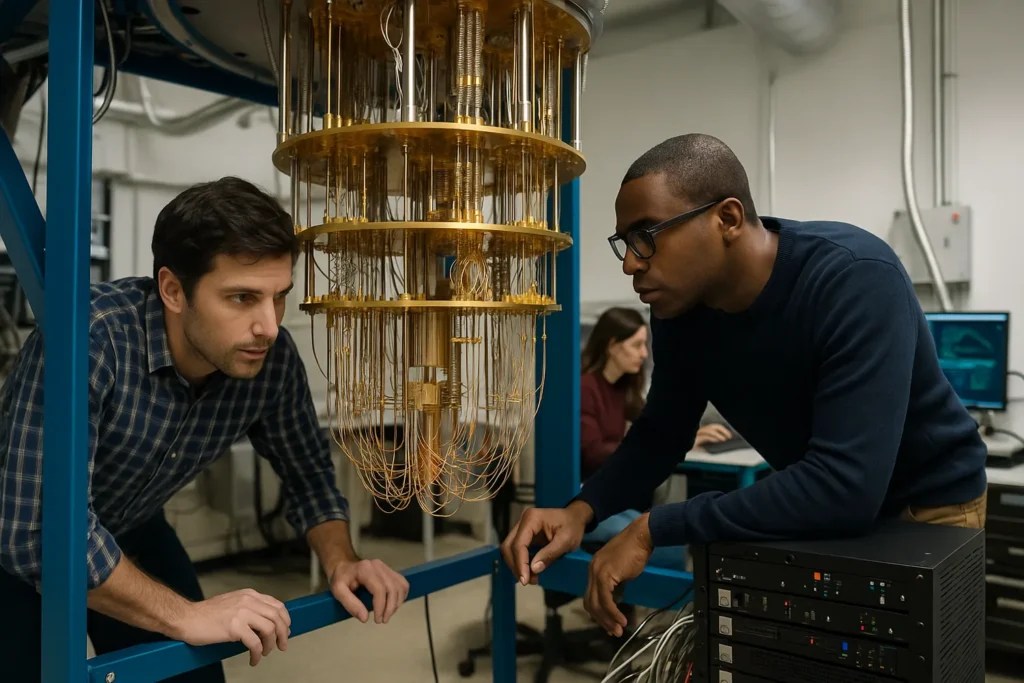The chatgpt startup collapse is not just a quirky anecdote from the early AI boom. It is a case study in misplaced faith, where a hundred dollars, a chatbot, and a viral experiment created a “startup” supposedly worth twenty-five thousand dollars — only to vanish within months. The story reveals the limits of artificial intelligence when it is treated as a substitute for real business foundations. AI can generate ideas, frameworks, and even momentum. But without human leadership and tangible products, it builds castles in the air.
Context: the viral experiment that fooled the crowd
In 2023, marketer Jackson Greathouse Fall decided to run a bold experiment. He gave ChatGPT one hundred dollars with a simple command: “Make as much money as possible, as quickly as possible. Don’t break the law. Don’t require physical labor.” The chatbot laid out its strategy:
- Spend ten dollars on a domain name.
- Invest five dollars on hosting.
- Use the remaining eighty-five dollars to populate the site with design and content.
The result was Green Gadget Guru, a website promoting “sustainable” products via affiliate marketing. The business model was simple: AI-generated product reviews would drive clicks, and affiliate commissions would provide income. On paper, it looked like a startup. In reality, it was a marketing stunt.
The mainstream reaction was predictably breathless. Social media lit up with commentary. Tech blogs framed it as proof that AI could bootstrap businesses overnight. Donations flowed in from curious onlookers. Followers wanted to see how far ChatGPT could go when treated like a digital CEO. The project even drew early-stage “valuations” based on traffic, donations, and hype, peaking at around $25,000.
But beneath the surface, cracks were already visible. The content was shallow. The design generic. The products weren’t real.
Oppositional Argument: the hollow core of the project
Why did the chatgpt startup collapse so quickly? Because there was nothing underneath. The illusion of success rested entirely on virality, not substance. Green Gadget Guru recycled stock photos, repeated generic phrases, and failed to create original value.
The so-called “valuation” was a mirage, inflated by social curiosity rather than genuine revenue. AI evangelists hailed it as proof of concept, but in truth, it proved the opposite: without human management, supply chains, and accountability, AI-only startups are doomed.
What the experiment really revealed is that hype, clicks, and speculative enthusiasm can mask emptiness — but only for a short time. As the novelty faded, so did the audience. Broken links, repetitive copy, and lack of engagement exposed the weakness of an AI-driven shell company.
Analytical Breakdown: hype cycles and fragile economics
The collapse of Green Gadget Guru fits neatly into a broader historical pattern. Every technological revolution sparks hype cycles. Investors and enthusiasts mistake potential for inevitability. Dot-com startups in the 1990s raised millions with no revenue. Blockchain projects in the 2010s sold tokens backed by nothing. AI in the 2020s repeats the same story.
The causes of the collapse can be broken down into three structural flaws:
- Dependence on virality Donations and attention propped up the project. Once novelty wore off, there was no steady income stream.
- Lack of operational backbone Affiliate businesses can succeed, but they require sourcing products, optimizing conversions, building partnerships, and refining logistics. ChatGPT could not negotiate supplier contracts or manage returns.
- Superficial content execution The chatbot produced endless product blurbs, but they lacked originality and personality. Readers noticed, engagement fell, and credibility eroded.
The consequences ripple beyond one experiment. Startups inspired by this stunt rushed to declare themselves “AI-powered,” seeking funding with no solid model. Many now face the same fate: early attention, no retention.
Human Perspective: the danger of effortless wealth fantasies
For ordinary people, the story had a seductive hook. Who wouldn’t want to turn a hundred dollars into twenty-five thousand with no effort? Social media thrives on these promises: passive income, hustle-free wealth, overnight success.
But reality intervened. Followers who donated saw nothing concrete delivered. The supposed valuation meant little without products, customers, or profit. Instead of a success story, it became a parable of disappointment.
Behind the fascination was a dangerous cultural myth: that AI can eliminate the grind of building a business. In truth, AI accelerates tasks but cannot replace the fundamentals — vision, discipline, execution, and human judgment.
Counterarguments
Some defenders insist the experiment actually proved AI’s power. They argue that ChatGPT created a functioning website, attracted attention, and grew value from nothing. They claim this shows AI’s capacity to bootstrap entrepreneurs into success.
But that reading misses the point. Yes, AI can help generate momentum. But momentum without foundation is meaningless. Investors in the dot-com era learned this when multi-million-dollar valuations collapsed overnight. Crypto enthusiasts learned it when token prices evaporated. The chatgpt startup collapse teaches the same lesson: hype is not business.
The Insider Angle: what really drove the hype
Behind the scenes, insiders in the marketing and tech communities admitted what most observers missed. The experiment was less about AI and more about storytelling. Jackson Greathouse Fall’s ability to frame the project as a “social test” was the real driver of attention. Twitter threads, screenshots, and viral framing created the illusion of a movement.
Industry experts privately noted that affiliate businesses like Green Gadget Guru have high failure rates. Without constant management, SEO optimization, and real brand partnerships, such ventures rarely last. The AI angle simply disguised a tired formula.
Moreover, some insiders observed that donations — not affiliate commissions — made up the bulk of the early money. In other words, it was performance art masquerading as commerce. Once the act lost novelty, the donations dried up.
Beyond the Collapse: lessons for the AI economy
The chatgpt startup collapse is not an isolated curiosity. It foreshadows larger risks in the AI-driven economy. Today, countless “AI-first” startups promise disruption. Venture capital pours in, chasing buzzwords rather than balance sheets.
The lesson is stark:
- AI is a tool, not a company.
- Valuations based on hype are unsustainable.
- Human oversight, product grounding, and operational discipline remain indispensable.
Those who ignore these lessons risk repeating Green Gadget Guru’s fate: a fast rise, a faster collapse.
Conclusion: against blind faith in AI
The chatgpt startup collapse is not proof of AI’s weakness. It is proof of human credulity. Believing that a chatbot could replace entrepreneurs, managers, and workers was the error. AI is a lever, but it needs hands to pull it.
If the early AI economy is to avoid becoming the next dot-com crash, we must resist the fantasy of autonomous machines building wealth. The reality is clear: AI can start the engine, but humans must drive the car. Without that, every “$25,000 startup” will end the same way — in collapse.
External Links
164 views








